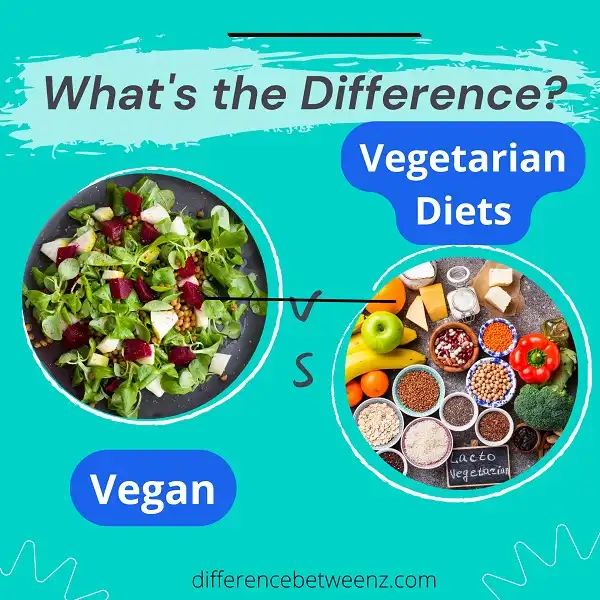There are many different types of diets, but the two most popular are vegan and vegetarian. Both have their pros and cons, but which one is right for you? Here’s a look at the key differences between vegan and vegetarian diets.
What is Vegan Diet?
Veganism is a type of diet that abstains from eating all animal products, including eggs, dairy, and honey. Proponents of veganism believe that it is cruel and unethical to eat animals or use them for labor and that a plant-based diet is healthier for both humans and the planet. They also point to the environmental impact of animal agriculture, which is responsible for greenhouse gas emissions, water pollution, and deforestation. While a vegan diet requires some careful planning to ensure that all nutrient needs are met, many people find that it has numerous health benefits, including weight loss, lower blood pressure, and reduced risk of heart disease. With the increasing popularity of plant-based diets, there are now more vegan options than ever before, making it easier than ever to enjoy a delicious and nutritious vegan meal.
What is Vegetarian Diet?
A vegetarian diet is a diet that excludes meat, poultry, fish, and sometimes eggs and dairy. Vegetarianism has a long history and there are a variety of reasons why people choose to follow a vegetarian diet. Some people do it for religious or spiritual reasons, while others do it for health reasons or to prevent animal cruelty. Whatever the reason, a vegetarian diet can be healthy and well-balanced if done correctly. A typical vegetarian diet includes plenty of fruits, vegetables, whole grains, beans, nuts, and seeds. It is important to make sure you are getting enough protein, iron, calcium, vitamin B12, and other essential nutrients. A registered dietitian can help you create a healthy vegetarian meal plan that meets your needs.
Difference between Vegan and Vegetarian Diets
Vegan and vegetarian diets are often confused, but there are actually quite a few differences between the two. For starters, vegetarians generally consume dairy products and eggs, while vegans do not. In addition, vegetarians may also eat honey, while vegans do not consume any animal products whatsoever. This includes not only meat and poultry, but also fish, shellfish, and insects. Furthermore, some vegans also choose to avoid using any products that have been tested on animals or that contain animal-derived ingredients. Finally, veganism is often seen as a more ethical choice than vegetarianism, as it does not involve the consumption of any animal products. As a result, vegans generally have a smaller carbon footprint than vegetarians.
Conclusion
The difference between vegan and vegetarian diets is more than just the type of animal product that’s avoided. Vegans avoid all animal products, including eggs and dairy, while vegetarians will eat eggs and dairy but not meat. There are many other differences as well, such as the nutrient composition of each diet and how they impact health. If you’re interested in which diet may be better for you, speak to a healthcare professional about your individual needs.


